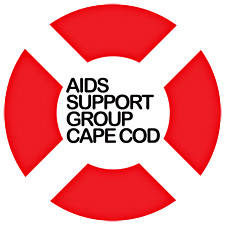UPDATE (original report below):
Today after a hearing, the Barnstable Superior Court (MA) enabled the AIDS Support Group of Cape Cod (ASGCC) to continue its needle distribution program to prevent the spread of HIV and Hepatitis C. The Court granted a temporary restraining order aginst the Town of Barnstable’s Director of Public Health, nullifying a “cease-and-desist” order that the town had issued against ASGCC and its 6-year-old program. A further hearing will take place on Friday, November 20, to determine the lasting resolution of the dispute.
Background on the case, as well as a copy of the temporary restraining order, can be viewed here.
ASGCC was represented in court today by Bennett Klein of Gay & Lesbian Advocates & Defenders (GLAD) and Andrew Musgrave of AIDS Action Committee of Massachusetts.
CAPE COD, Mass.—Today in Barnstable Superior Court, AIDS Support Group of Cape Cod (ASGCC) filed suit against Barnstable for preventing the group from providing free sterile needles to intravenous drug users at its Hyannis offices. ASGCC is being represented by Gay & Lesbian Advocates & Defenders (GLAD) and AIDS Action Committee (AAC). The legal documents can be read here.
“Barnstable’s board of health has absolutely no legal authority to shut down this program, because this program is entirely legal,” said attorney Bennett Klein, AIDS Law Project Director of GLAD. “In 2006, the legislature repealed all prohibitions and restrictions on the possession and distribution of hypodermic needles, precisely to address the public health emergency at the center of this case: the HIV and HCV epidemics.”
On September 22, 2015, Barnstable’s director of public health hand-delivered to ASGCC a hand-written “cease and desist” order in which he asserted that ASGCC was distributing syringes in violation of Massachusetts law. After ASGCC indicated they were suing to challenge the order, the Board of Health suspended the order for one week (from 11/3-11/10) and asked ASGCC and the town to reach an agreement addressing neighborhood concerns. ASGCC agreed to address parking issues and to implement a program to pick up improperly discarded syringes. While ASGCC was formulating the plan, the town unreasonably escalated its demands.
Prior to the order, ASGCC served 20-30 injection drug users per day at its Hyannis office, where they received comprehensive services including free testing for HIV and Hepatitis C; medical case management and referrals to drug rehabilitation programs; nutritious meals; and other social supports. After the cease-and-desist order, ASGCC was seeing two or three injection drug users per day.
“There is no doubt in my mind that each day we are prevented from offering sterile drug injection equipment is another day that someone in Barnstable County has needlessly become infected with hepatitis C or HIV,” said Max Sandusky, Director of Prevention and Screening Services at ASGCC. There is also no doubt in my mind that our clients, who also received Narcan from us, are now also at high risk for fatal overdose. This is a public health emergency.” [pullquote]Prior to the order, ASGCC served 20-30 injection drug users per day at its Hyannis office, where they received comprehensive services including free testing for HIV and Hepatitis C; medical case management and referrals to drug rehabilitation programs; nutritious meals; and other social supports. After the cease-and-desist order, ASGCC was seeing two or three injection drug users per day.[/pullquote]
“Every city and town in Massachusetts has been touched by the opioid crisis. Shutting down a program that works―this year alone, AIDS Support Group of Cape Cod helped reverse nearly 300 overdoses―has recklessly and needlessly put the public at risk,” said Carl Sciortino, Executive Director of AIDS Action Committee of Massachusetts. “We know that needle exchange programs are incredibly effective interventions that help lower transmission rates of HIV and hepatitis C. Since the establishment of free needle exchanges in Massachusetts, the prevalence of HIV among residents who inject drugs has dropped by 92 percent.
”ASGCC has been a collaborative community partner in working to keep the public safe during the opioid crisis. While there are other entities that make sterile syringes and needles available to injection drug users―such as pharmacies―these institutions do not collect needles and syringes that have been used, as ASGCC does. From July 1, 2014 to June 30, 2015, ASGCC distributed 112,604 syringes and collected 115,209. Thanks to ASGCC’s policy of encouraging clients to bring in used needles for proper disposal, 2,605 needles that were distributed by institutions other than ASGCC and which might otherwise have been improperly discarded were not. [pullquote]“We know that needle exchange programs are incredibly effective interventions that help lower transmission rates of HIV and hepatitis C. Since the establishment of free needle exchanges in Massachusetts, the prevalence of HIV among residents who inject drugs has dropped by 92 percent.—Carl Sciortino, Executive Director of AIDS Action Committee of Massachusetts[/pullquote]
ASGCC provides services on Cape Cod to support people with HIV/AIDS and hepatitis C virus, and works to prevent the spread of those infections to others on the Cape. In Hyannis and Provincetown, ASGCC offers case management, peer support, housing, nutritional programs, testing, and risk reduction strategies to more than 800 clients. Among those risk-reduction strategies is the availability of sterile needles, along with bio-hazard containers and counseling, to injection drug users, who are at high risk for both HIV and hepatitis C.
Through strategic litigation, public policy advocacy and education, Gay & Lesbian Advocates & Defenders works in New England and nationally to create a just society free of discrimination based on gender identity and expression, HIV status and sexual orientation.
AIDS Action Committee of Massachusetts is the state’s leading provider of prevention and wellness services for people living with and at risk of HIV/AIDS. AIDS Action works to stop the epidemic by eliminating new infections; maximizing healthier outcomes of those infected and at risk; and tackling the root causes of HIV/AIDS. Founded in 1983, AIDS Action is New England’s oldest and largest AIDS service organization, advocating for the needs of people living with HIV/AIDS by educating the public and health professionals about HIV prevention and care; and promoting fair and effective HIV/AIDS policy at the city, state, and federal levels. In 2013, AIDS Action Committee of Massachusetts entered into a strategic partnership with Fenway Health, allowing both organizations to improve delivery of care and services across the state and beyond.
[From a News Release]








